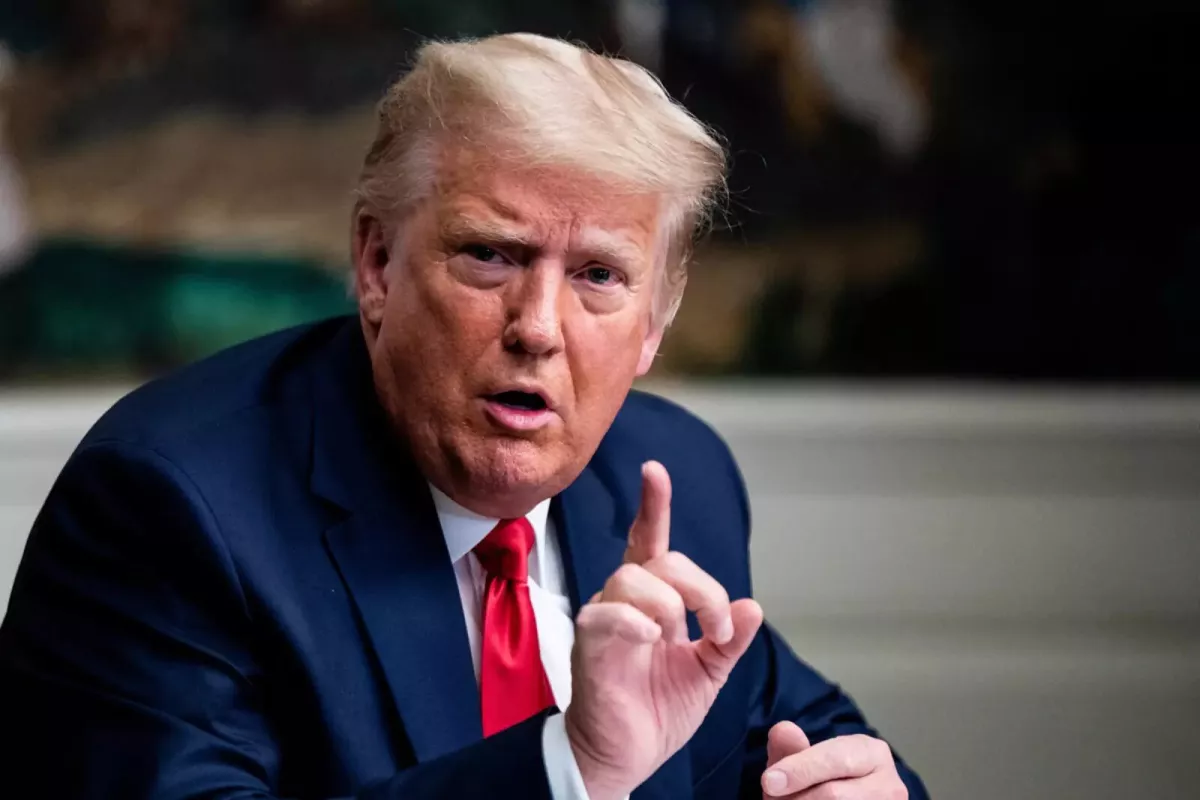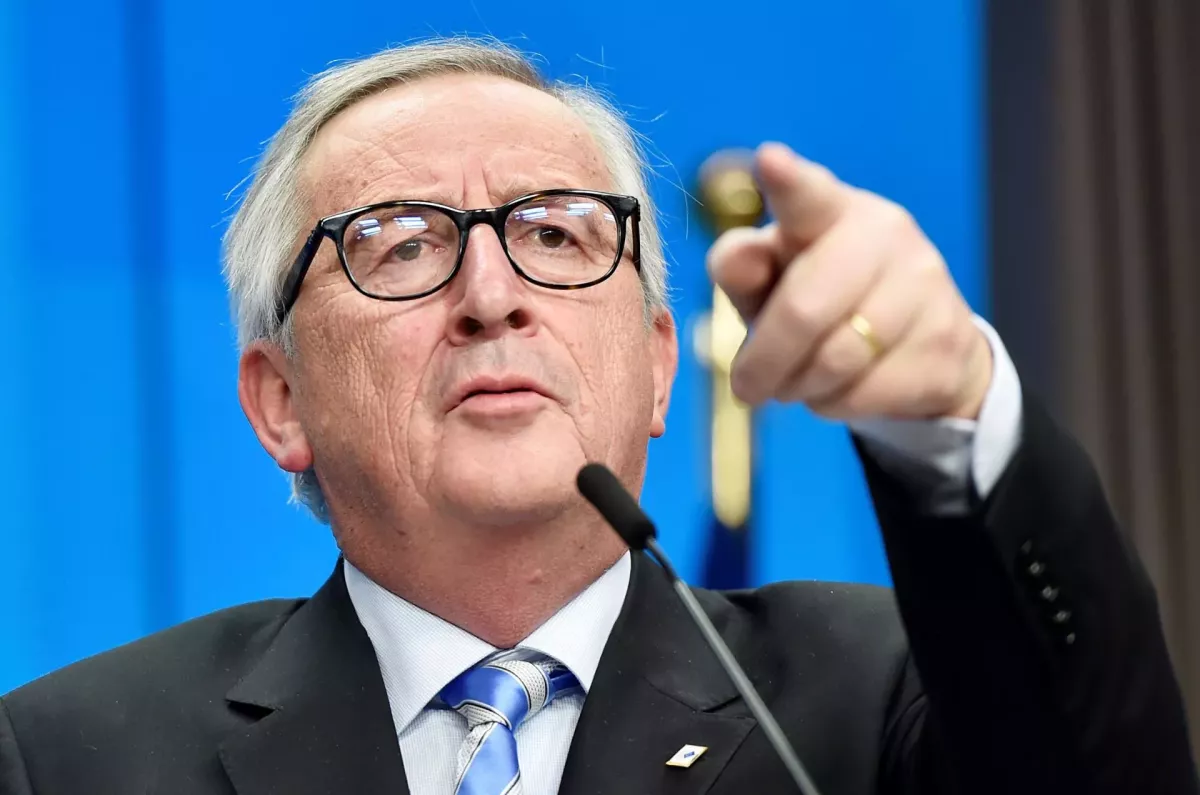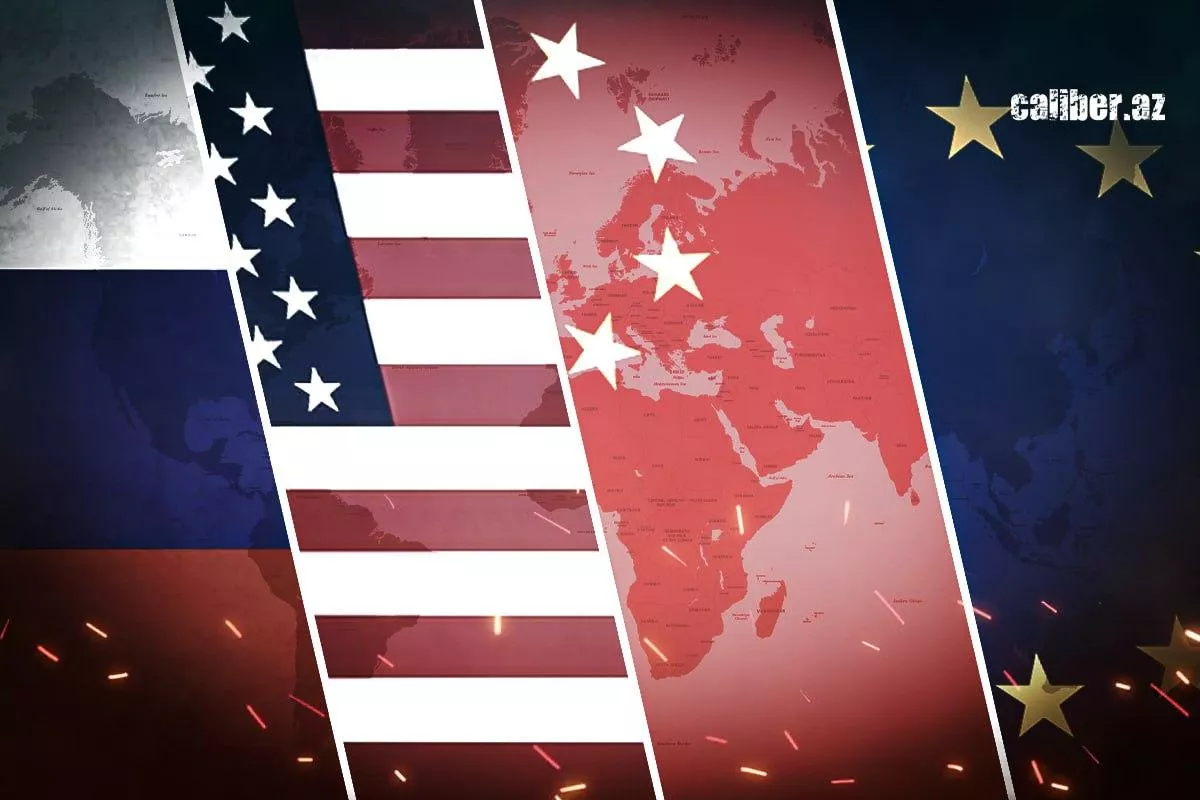EU preparing for a two-front trade war ahead of US elections Transatlantic tensions
In Brussels, anxiety over the US presidential election is growing, and meetings between representatives of the European Commission and EU diplomats are becoming more frequent. An "emergency response headquarters" has already been created in case Donald Trump returns to power.
Why is Europe preparing for the US elections?
As the US presidential election approaches, officials and politicians across the old continent are feeling increasingly uneasy. At the end of October, several high-ranking EU officials met with ambassadors from all 27 member states specifically to discuss the "threat" posed by Trump and to develop measures in case he returns to the White House.
The meetings included participation from Björn Seibert, chief of staff to European Commission President Ursula von der Leyen, along with six directors-general from key departments, covering areas like trade, energy, and digital policy. These sectors are the most vulnerable to potential impacts from another Trump administration, and the EU wants to take preemptive measures to brace for a possible economic blow from across the Atlantic. While there are no official disclosures on the discussions yet, several EU diplomats, speaking anonymously, shared some details with European journalists.
Unpredictable Trump
What has Brussels so worried? Recently, Donald Trump made headlines with tough rhetoric, this time targeting the EU. " They don't take our cars, they don't take our farm products, don't take anything. You have a $312 billion deficit with the EU. You know, the EU is a mini -- but not so mini -- is a mini China," the Republican candidate declared in a radio interview.

Trump has long portrayed himself as a champion of American industry and its workers, promising to impose 10-20% tariffs on imported goods, including those from Europe. In his view, this would help bring jobs back to the US industrial sector and reduce America's large trade deficit. To further support American business, the Republican candidate pledges to lower taxes for corporations and the wealthy and withdraw from all climate agreements. Some experts believe that if the US exits the Paris Agreement, China will dominate the climate agenda.
Trump also reiterated that the US will no longer "protect" NATO countries that spend less than 2% of GDP on defence. There are concerns that Trump would shift much of the financial burden of the war in Ukraine onto the EU. He even pledged to demand Europe reimburse the U.S. for munitions already used in Ukraine. Some experts fear he may even withdraw from NATO entirely, though this is seen as unlikely.
However, the very real possibility of 10-20% tariffs on European goods would deal a severe blow to the EU's economy, which heavily relies on the United States. The US is the largest foreign investor in Europe, and trade between the two, valued at $1.3 trillion, represents the world’s largest bilateral economic partnership.
Not all of Trump’s promises are just populist rhetoric. Brussels still recalls the shock of 2018, when Trump imposed a 25% tariff on steel and a 10% tariff on aluminium from the EU during his first term. Following Trump’s announcement, the Dow Jones Industrial Average dropped 420 points, erasing an earlier gain of 150 points that day. At the time, then-European Commission President Jean-Claude Juncker called Trump’s decision “a blatant intervention to protect US domestic industry” and vowed to strike back hard against America.

The governments of Canada and Mexico were also nearly paralyzed with shock, as they were in the midst of renegotiating the North American Free Trade Agreement (NAFTA) with the United States at the time. The decision also sparked outrage in China and Japan. Yet, Trump made the decision after a White House meeting with representatives from U.S. steel and aluminium companies, and he had no intention of reversing it. He argued that, while American goods face zero tariffs in the EU, some US products are subject to tariffs of 25%, 50%, and even 100% in Europe.
As for Europe’s response to Trump’s blatant protectionism, it was more bark than bite. The EU quickly regained composure and avoided escalating a trade war with its "big brother" across the Atlantic. Brussels limited its retaliation to designing tariffs on select goods like orange juice, motorcycles, and whiskey from specific US states where Republican support was strong.
It wasn’t until 2021, under Biden’s presidency, that the EU and the US reached a deal on steel and aluminium tariffs. However, these restrictions were only partially lifted by the American side, showing that it wasn’t just about Trump’s aggressive protectionism but fundamentally about US corporate interests. Critics also pointed out that these tariffs failed to create new jobs in American steel mills.
In his new campaign, Trump is even less restrained in his aggressive rhetoric. He not only promises to shield American manufacturers from imports but also threatens to dismantle EU industries altogether, aiming to pressure Europeans, Chinese, and South Koreans to relocate their production to the United States. Speaking in Georgia, the presidential candidate declared that the U.S. would "take jobs from other countries." Trump has also vowed to address European competition investigations into American corporations. For instance, a recent EU court ruling forced Apple to pay €13 billion in unpaid taxes to Ireland.
The EU is particularly concerned about Trump’s antagonism toward the German automotive industry. The US is the largest importer of German cars, and German automakers have factories across the UK, Spain, Poland, Belgium, the Czech Republic, Hungary, Romania, and other countries. Sanctions against "the Germans" would effectively strike at the heart of Europe’s auto industry.
"Trade wars are good, and easy to win," Trump said back in 2018, and it seems the conservative candidate has no plans to back down from this mantra.
Headquarters for global trade war
Another topic actively discussed in recent EU meetings was China. The concern wasn't only about Europe's significant struggles in competing with this rising economic giant but also about the excessively harsh policies Trump promised to enforce against China. While specific details remain undisclosed, it’s possible that a renewed escalation in US-China relations could bring a host of negative repercussions for the EU. For instance, further restrictions on Chinese imports into the US could lead to Chinese goods flooding EU markets, adding pressure on European manufacturers. Alternatively, Trump could impose sanctions on telecom operators using Chinese equipment—a move that would also impact Europeans.
On the other hand, Europe is urging Trump to avoid abrupt actions against the EU to maintain a united front against China. Yet, amid the ongoing Russia-Ukraine conflict, an economic war on two fronts—against both Washington and Beijing—would be extremely challenging for Europe to endure.

Today, Europe is signalling that it won’t let Trump catch it off guard again. In fact, Brussels appears ready with a detailed list of countermeasures to prepare for what they see as a new “global trade war.” The EU has already set up a “rapid response task force” in anticipation of a potential victory by the Republican candidate. This group, led by Ilze Juhansone within the General Secretariat of the European Commission, is devising strategies for both Donald Trump’s and Kamala Harris’s possible presidencies. However, Brussels insiders have nicknamed it the “Trump task force.” A similar group has been established within Germany’s Foreign Ministry.
According to reports, EU leaders plan to hold an informal summit in Budapest just three days after the US presidential election, likely to finalize a unified approach to relations with Washington. Recent high-level meetings between European Commission officials and EU ambassadors are thought to be part of the groundwork for this comprehensive strategy.
On October 4, a draft text emerged that may be adopted at this meeting as the “Budapest Declaration.” The draft takes an alarmist tone, stating that “not a moment should be lost” in countering the challenges of the new geopolitical reality, enhancing competitiveness, and preserving EU sovereignty. The draft was largely based on reports commissioned by the European Commission from Mario Draghi, focusing on measures to boost EU competitiveness, as we previously reported, and from Enrico Letta, titled “Much More Than a Market.” One of the key points in the draft calls for deeper integration through further development of the single market as an essential step toward “saving Europe.”
Let’s say it’s not exactly a new proposal. However, this time, there are specific targets: creating a unified European capital market, achieving a full energy union by 2027, reaching climate neutrality by 2050, and developing a European Technology Strategy by mid-2025, with a focus on quantum technology and artificial intelligence. There’s also talk of strengthening European industry—especially the EU’s military sector—and “ensuring reliable and unhindered access to critical raw materials.” These last two points, given the backdrop of ongoing global conflicts, are particularly noteworthy.
In the “Trade” section, the draft states: “The EU has always championed open trade and multilateralism, but it must continue adapting to rising geopolitical tensions and rapid technological change.” Despite nods to free-market principles and calls to reduce bureaucracy, the draft repeatedly emphasizes the need to protect the European economy. Crucially, the final section of the Budapest Declaration argues that to close the gap with competitors like the US and China, the EU will require a blend of private and state funding. Ironically, this suggests the European Commission is now partially adopting the very practice of state-backed financing it once sanctioned China for. But the pressures of competition seem to have prompted EU liberals to reconsider some of their core principles, with the declaration underscoring: “The time for business as usual is over.”
The notorious process of European integration has received a new impetus: “Europe must stand united to protect itself from Trump.” As for Kamala Harris, she is often seen as a loyal supporter of partnership with the EU. However, it is less frequently mentioned that she has previously expressed scepticism about international free trade agreements. Yet, it seems that the current discord between allies goes beyond the personal traits of Trump or Harris.
The primary reason for the current rift among allies is the harsh reality that the global economy, once dominated by Western hegemony, is now facing a severe crisis. Economic conflicts will not only intensify with China and other nations but also erupt within the Western bloc itself. Regardless of who wins the elections in the US, the world stands on the brink of significant upheavals and monumental changes.








